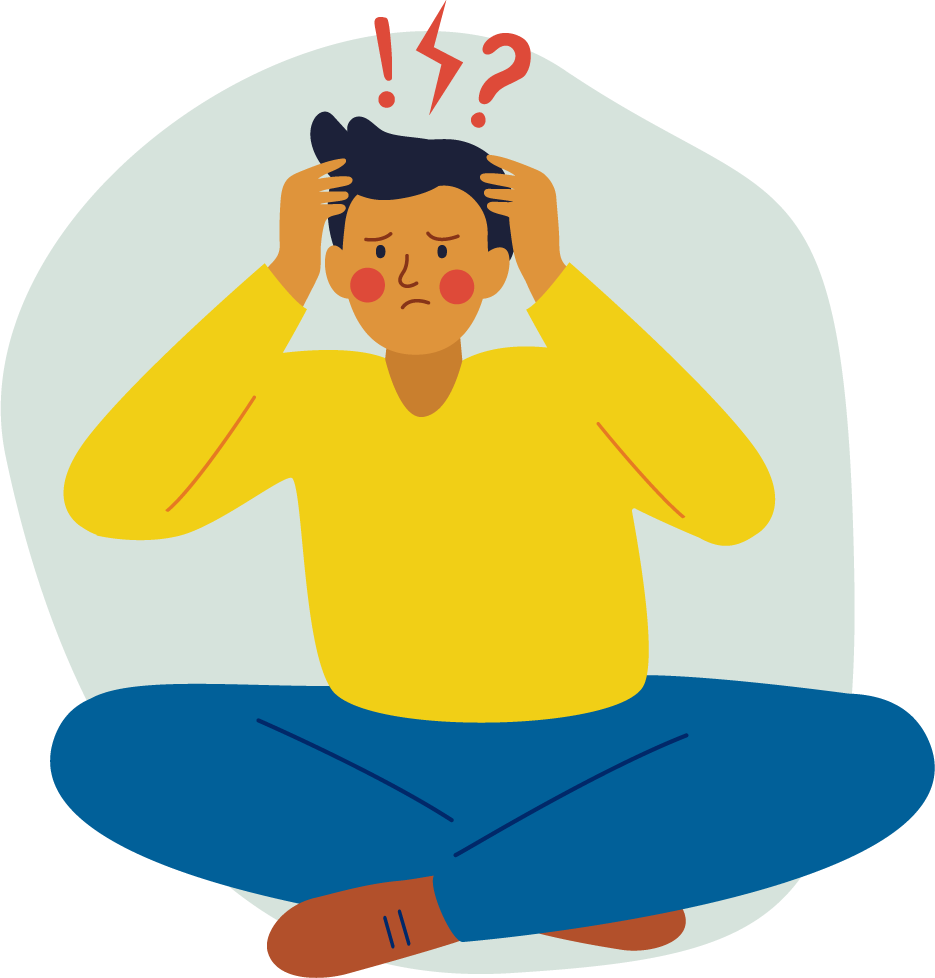Therapy for Stress
in Marietta and Roswell
Our stress management therapy provides tools and techniques to help individuals effectively cope with and reduce stress in their daily lives. Through our professional therapy services and support, clients learn how to manage stressors, improve mental well-being, and enhance overall quality of life.


Has the slow drip of daily stressors suddenly become too much for you to bear?
If you find yourself struggling with a major stressor that feels like it's too much to handle, seeking counseling for stress could be the key to finding relief. Whether it's the constant demands of managing responsibilities at home and caring for children, or a specific challenge like coping with a serious illness or navigating strained family dynamics, stress management therapy can provide the support you need. These professional therapy services are designed to help you release some of the pressure that has built up, allowing you to regain a sense of balance and joy in your life.
Through counseling sessions, you can learn effective strategies for managing stress, develop healthy coping mechanisms, and learn to navigate difficult situations with more resilience. Therapists trained in stress management can offer guidance and support tailored to your individual needs and circumstances, helping you address underlying issues contributing to your emotional strain. By working with a therapist on stress-related concerns, you can gain valuable insights into your patterns of thinking and behavior, as well as learn practical skills for reducing anxiety and improving overall well-being.
What Does Stress Feel Like?
Experiencing stress is a part of life, but too much stress can be harmful. In America, an estimated 45% of adults ages 35 and 44 and 50% of adults between the ages of 18-34 have a mental health diagnosis. The effects of too much stress can lead to anxiety, depression, self-harm, or even suicide. Due to this, it is crucial to be mindful of stress symptoms, enabling you to take the necessary steps to prioritize your physical and mental health.
When you encounter stress, your body's nervous system changes some of its functions such as breathing, heart rate, and vision. This stress reaction is known as the fight-or-flight response, which enables your body to confront and manage stressful situations.
While this stress reaction would be very helpful if you are being chased by a tiger, it is not so helpful when you are trying to function in your daily life or sleep at night. The constant stress reaction in your body can lead to a variety of physical and mental health problems.
Physically, prolonged stress can contribute to conditions like high blood pressure, heart disease, and weakened immune function. Mentally, it can manifest as anxiety disorders, depression, or insomnia.
Fortunately, seeking therapy can be extremely beneficial when faced with persistent stress. Therapists can provide a supportive environment for exploring the causes of stress, developing coping strategies, problem-solving, learning relaxation techniques, and overcoming worry related to stress. Cognitive-Behavioral Therapy (CBT), for example, can be used to identify and challenge negative thought patterns that contribute to stress. Additionally, therapists can offer personalized guidance tailored to your specific needs and circumstances.
Experiencing Stress in Your Body
This response can manifest in physical and mental symptoms. Some of the physical symptoms include:
- Body aches and pains
- Dizziness or shaking
- Chest pain and/or heart palpitations
- Difficulty Sleeping
- Digestion problems
- Exhaustion
- Headaches
- Hypertension
- Muscle Tension
- Weakened immune system
Overall, stress therapy is a proactive approach to addressing the challenges that may be affecting your mental health and quality of life. With the help of a trained professional, you can explore new perspectives, build self-awareness, and cultivate greater emotional strength in the face of adversity. Don't hesitate to reach out for support if you're feeling overwhelmed by stress – counseling services are available to assist you on your journey towards renewed vitality and inner peace.
Why Is Stress Management Therapy Important?
Excessive stress can have negative effects on your physical and mental health. Ongoing or chronic stress is associated with:
- Increased risk of health issues
- Heart problems
- Weakened immune system
- Gastrointestinal disorders
- Increase in anxiety and depression
- Impaired memory
- Problems with memory and concentration
- Problems sleeping
- Strain on relationships
- Poorer quality of life
How can therapy for Stress Management help me?

- Identify and challenge negative thought patterns contributing to stress
- Analyze stressors and develop problem-solving strategies
- Set healthy boundaries and learn to say "no" when necessary
- Get a different perspective and insight into sources of stress to help you make more informed decisions
- Explore the root causes of your stress and gain insight into any triggers
- Learn mindfulness strategies and relaxation techniques to help you stay present in the present moment to reduce stress
- Develop a toolbox of coping strategies to deal with stressors, including healthier ways of responding to challenges
